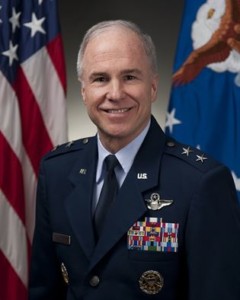
Pandemics and Climate Change: National Security Implications of Non-Traditional Threats
Pandemics and climate change both threaten national security, and yet the U.S. is ill-prepared for them.
Coronavirus has taken more than 100,000 lives in the U.S., forced 40 million Americans to file for unemployment, and devastated the economy. It has also affected military readiness and preparedness. Coronavirus forced the military to postpone boot camp, cancel training exercises, and disrupted normal operations.
Worsening storms, rising seas, drought, and extreme heat–all linked to climate change–have taken American lives, disproportionately impacted low-income and people of color, caused billions in economic damage and disrupted the U.S. economy. Climate change also threatens military readiness and preparedness, is an “accelerant for instability” abroad, and has the potential to threaten U.S. national security interests.
Climate change, however, is increasing the likelihood of future pandemics, and the consequences of climate change are only getting worse. The military must act now to prepare. Join Major General Rick Devereaux, USAF (ret.) of Asheville, North Carolina for a discussion of what the military is doing and needs to do to mitigate the threat posed by future pandemics and climate change.
Program Partners

WACC National Security Series (virtual)
Date: Tuesday, June 30, 2020
Time: 2:00 – 3:00 p.m.
Register online (Free to WACC members and non-members)
Biography
Major General Rick Devereaux, USAF (ret.), is a national security professional who consults, lectures, and writes on a variety of security and military topics and actively serves as a U.S. Air Force Adjunct Contract Professor. General Devereaux earned a B.S. in International Affairs from the US Air Force Academy, and holds M.S. degrees in Systems Management (AF Institute of Technology), Airpower Art and Science (Air University), and National Security Strategy (National War College).
General Devereaux served 34 years in the Air Force as a pilot, functional expert, and commander at multiple levels. As a pilot, he logged over 4,000 hours in the C-5 Galaxy, KC-135 Stratotanker, and instructed in numerous training aircraft. He commanded a flying squadron, an operations group, two wings, two installations, and the US Air Force Expeditionary Center in New Jersey. After 9/11, he commanded an Air Force operations group that deployed multiple teams that established air mobility hubs across the Middle East. He also served two tours on the Joint Staff at the Pentagon within the Operations and Logistics directorates, was the Director of all Air Force flying and technical training operations, and the Director of Regional Affairs on the Secretary of the Air Force’s international affairs staff. His last job on active duty was the Air Force Director of Operational Planning, Policy, and Strategy at the Pentagon.
Since retiring in 2012, General Devereaux has worked as a strategic consultant for numerous defense firms, think tanks, and technology companies, and is a member of the American College of National Security Leaders. He writes and lectures on defense, climate and security, technology, and leadership and has served on the Boards of several civic and veterans organizations, including the National D-Day Memorial in Bedford, VA, the Blue Ridge Honor Flight, the City of Asheville Civil Service Board, and the Advisory Group of the Center for Climate and National Security in Washington, DC.


